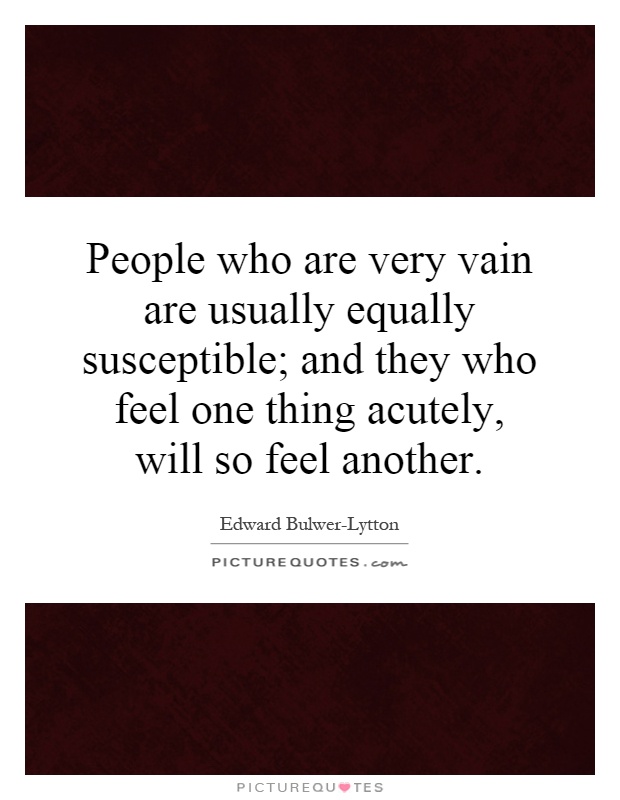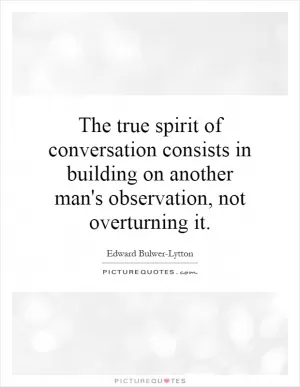People who are very vain are usually equally susceptible; and they who feel one thing acutely, will so feel another

People who are very vain are usually equally susceptible; and they who feel one thing acutely, will so feel another
Edward Bulwer-Lytton, a renowned English novelist and politician, was known for his keen observations of human nature and his ability to capture the complexities of human emotions in his works. One of his famous quotes, "People who are very vain are usually equally susceptible; and they who feel one thing acutely, will so feel another," reflects his understanding of the interconnectedness of different emotions and personality traits.In the context of Bulwer-Lytton's quote, vanity and susceptibility are closely linked. People who are excessively vain often have a heightened sensitivity to criticism or praise, as their self-worth is tied to external validation. This vulnerability makes them more susceptible to the opinions and actions of others, as they are constantly seeking affirmation of their worth. Their vanity can also make them more sensitive to perceived slights or insults, leading to exaggerated emotional responses.
Similarly, individuals who feel one emotion acutely are likely to experience other emotions with the same intensity. For example, someone who feels love or joy deeply may also feel sadness or anger intensely. This heightened emotional sensitivity can be both a blessing and a curse, as it allows for a richer and more profound experience of life, but also makes individuals more vulnerable to emotional upheavals.
Bulwer-Lytton's quote suggests that vanity and susceptibility are two sides of the same coin, reflecting a deeper truth about human nature. Our emotions and personality traits are interconnected, shaping our perceptions and reactions to the world around us. By recognizing the interplay between vanity and susceptibility, we can gain a better understanding of ourselves and others, and cultivate greater empathy and self-awareness.












 Friendship Quotes
Friendship Quotes Love Quotes
Love Quotes Life Quotes
Life Quotes Funny Quotes
Funny Quotes Motivational Quotes
Motivational Quotes Inspirational Quotes
Inspirational Quotes